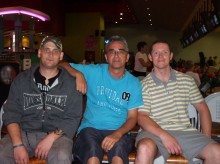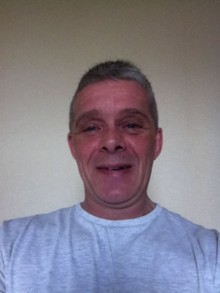The importance of these factors has been demonstrated by listening to the narratives of recovering people about their journeys into and out of addiction (1,116 words). *
Andy Puddicombe: All it Takes is 10 Mindful Minutes
When is the last time you did absolutely nothing for 10 whole minutes? Not texting, talking or even thinking?
Mindfulness expert Andy Puddicombe describes the transformative power of doing just that: Refreshing your mind for 10 minutes a day, simply by being mindful and experiencing the present moment. (No need for incense or sitting in uncomfortable positions)
‘The Importance of Hope in Healing From Depression’ by Douglas Bloch
In this video, author and depression counselor Douglas Bloch talks about how hope can be your best ally when recovering from depression. Please check out Douglas’s website and book on healing from depression, which are top-quality resources.
‘Experiencing Recovery – Part 4′ by William L. White: Frameworks of Recovery
In this part of his talk, Bill White discusses the degrees/depths of recovery. He describes how some better people feel ‘better than well’ after recovery.
He goes on to describe different types of recovery initiation/maintenance framework and different styles of recovery.
‘6 Secrets to Moving On From Serious Struggles’ by Beth Burgess
 “Never be ashamed of a scar. It simply means you were stronger than whatever tried to hurt you.” ~ Unknown
“Never be ashamed of a scar. It simply means you were stronger than whatever tried to hurt you.” ~ Unknown
‘People who knew me ten years ago would probably expect me to be dead now. They wouldn’t expect me to have escaped my problems. They wouldn’t expect me to have stopped drinking, drugging, taking overdoses, and cutting my arms.
People who knew me ten years ago saw a scared shell of a girl, terrified of her own shadow and on a mission to self-destruct. They wouldn’t expect me to have turned my life around completely. They certainly wouldn’t expect me to be sharing my story and helping others to let go of their struggles, too.
‘You Can Improve Your Life’ by Matt Kay
 We haven’t had a Matt Kay blog for awhile, so here is one from Wired In To Recovery in June 2012.
We haven’t had a Matt Kay blog for awhile, so here is one from Wired In To Recovery in June 2012.
‘Firstly, I apologise for this list having 12 steps. I didn’t realise that it did until it was formatted better. It does seem, that although I don’t follow the 12 steps rule, a lot of my recovery based blogs/posts on here may appear to have the said number of ‘rules’. Hey, I may just like the number 12!. Well here it is, the latest one, entitled “You can Improve Your Life”. Try it!
How many times have you told yourself that you are going to improve your life, but ended doing nothing? How many times have been dissatisfied with some aspects of your life and vowed to change them, but did not follow through with your decision?
Andy Puddicombe: All it takes is 10 mindful minutes
When is the last time you did absolutely nothing for 10 whole minutes? Not texting, talking or even thinking?
Mindfulness expert Andy Puddicombe describes the transformative power of doing just that: Refreshing your mind for 10 minutes a day, simply by being mindful and experiencing the present moment. (No need for incense or sitting in uncomfortable positions)
‘Trauma Change Resilience’ by Dr. Megan McElheran at TEDxYYC
“If, on a day-to-day basis, we as individuals and as members participating in our communities are better able to operate from a position where all experience is valued, I think we will be healthier and better able to address the challenges in our lives from a place of being willing and able to have an experience whatever those challenges should entail.”
As Canada begins to assimilate its soldiers from Afghanistan, Dr. Megan McElheran’s undertaking is an important mission. The Stanford-educated doctor of psychology is one of a team of 13 at the federally-funded CareWest Operational Stress Injury (OSI) Clinic tasked with diagnosing and treating psychologically-injured soldiers returning from the fields of battle in Afghanistan, as well as previous conflicts and peacekeeping missions.
Megan’s work also includes addressing the burgeoning awareness of the impact of operational stress-related injuries on current serving and veteran members of the Royal Canadian Mounted Police.
‘The problem with instant graftification’ by Matt Kay
 Here’s another excellent blog that Matt Kay submitted to Wired In To Recovery.
Here’s another excellent blog that Matt Kay submitted to Wired In To Recovery.
‘Our world today is based upon instant gratification. Taking into consideration all of the technology that allows us to get what we want right when we want it, it’s really no wonder that we are trying to apply that standard to our emotional state.
Think of all the ways that people use drugs or alcohol pertaining to instant gratification. If you are having a stressful day – pop a pill and feel de-stressed. If you are feeling a little social anxiety or lack of confidence in a situation – have a few drinks and get some liquid courage.
Marion’s Story: My Culture
Marion believes her culture is changing and she has learned to adapt when changes occur.
Dealing with Betrayal and Abandonment
 Beth Burgess flagged this article which appeared on Hubpages. Sometimes things happen in your recovery that are difficult to come to deal with. Here is some excellent advice.
Beth Burgess flagged this article which appeared on Hubpages. Sometimes things happen in your recovery that are difficult to come to deal with. Here is some excellent advice.
Remain Objective
It is all too easy to blame ourselves when we have been betrayed or abandoned, and to take the actions of others as a personal affront. Most people’s behaviour is a reflection of their own shortcomings or mental state rather than a rejection of you personally.
Try to be objective about the situation – ask yourself if you genuinely did anything wrong, or was this situation brought about because of the other person’s issues. If you do feel that you were somewhat to blame, what can you learn from this occasion and how can you do better in future.
Recovery Vision: New paradigm, new questions, new answers
I’ve just watched this wonderful talk (from 2001) by Bill Anthony, one of the pioneers in recovery-based care in mental health. [Bill starts his talk at 25’20” into the video]
Bill describes a metaphor for explaining a paradigm shift, such as the paradigm shift to recovery-based care in mental health.
This metaphor is that mankind once thought the world was flat. This understanding led to certain questions such as, “How far do I sail before I fall off the end of the earth?” Once mankind learnt the world was round, these questions were redundant. We asked different questions.
A wonderful blog from a recovery ally
 Please check out Jim’s blog. Jim is the executive director of a counseling center in the States that specialises in addiction, dual diagnosis, and trauma.
Please check out Jim’s blog. Jim is the executive director of a counseling center in the States that specialises in addiction, dual diagnosis, and trauma.
I quote from the introduction to this blog: “Every day he [Jim] works to bring people to a deeper understanding of themselves in order to help them find their way to a meaningful recovery. He has a wonderful perspective on what it takes to walk that path – and how patients and counselors can work together to accomplish lasting recovery.”
“What is Recovery?” according to Stephanie Brown (Part 2)
 In an earlier blog, I referred to Stephanie Brown’s book A Place Called Self, in which she describes recovery as radical change in personal identity, or the self. Stephanie goes on to emphasise a number of myths about recovery.
In an earlier blog, I referred to Stephanie Brown’s book A Place Called Self, in which she describes recovery as radical change in personal identity, or the self. Stephanie goes on to emphasise a number of myths about recovery.
Firstly, the dictionary definition of recovery states ‘a return to a normal condition.’ This would suggest that in addiction recovery the person goes back to where they were before they became addicted. In fact, this is rarely the case. Stephanie emphasises that recovery is more like a starting over than a restoration of what was lost during addiction. This is because for many people the real self was never really developed.
On blaming
 ‘When you plant lettuce, if it does not grow well, you don’t blame the lettuce. You look into the reasons it is not doing well. It may need fertilise, or more water, or less sun.
‘When you plant lettuce, if it does not grow well, you don’t blame the lettuce. You look into the reasons it is not doing well. It may need fertilise, or more water, or less sun.
Yet if we have problems with our friends or our family, we blame the other person. But if we know how to take care of them, they will grow well, like lettuce.
Blaming has no positive affect at all, nor does trying to persuade using reason and arguments…
‘Why I chose recovery’ by Tony A
 Tony A was one of my favourite bloggers on Wired In To Recovery. He certainly didn’t mess around on what he had to say and his blogs provided some invaluable insights into the recovery journey and also the UK addiction care system. Here is a great blog he wrote back in 2010.
Tony A was one of my favourite bloggers on Wired In To Recovery. He certainly didn’t mess around on what he had to say and his blogs provided some invaluable insights into the recovery journey and also the UK addiction care system. Here is a great blog he wrote back in 2010.
‘This is my personal perspective to why I chose recovery over addiction. You see for me my addiction fulfilled so many requirements in my life.
I enjoyed the effects of drugs, drugs suppressed my emotions, drugs gave me an identity and a reason to exist, drugs were my longest and strongest relationship, my ultimate form of support, my way of coping with the insanity of life.
A letter to Alcohol
 Here is a letter that Beth Burgess, recovery coach from Smyls, wrote in her early recovery:
Here is a letter that Beth Burgess, recovery coach from Smyls, wrote in her early recovery:
“Dear Alcohol,
Well it’s been a while now, and although you are a bad influence, I do miss you sometimes. I miss our secret relationship, the way that no-one else was part of it and could never get in on it. I miss the way you comfort me when I’m down. It sometimes creeps up on me unexpectedly how much I miss you. And other times I am glad you are gone.
Of course you have changed – and I know that. You’re not fun any more. But I seem to forget that when we’re not together. I don’t know why my memory is so short and why I always remember the good times with such intensity. It hasn’t been that way for a while.


